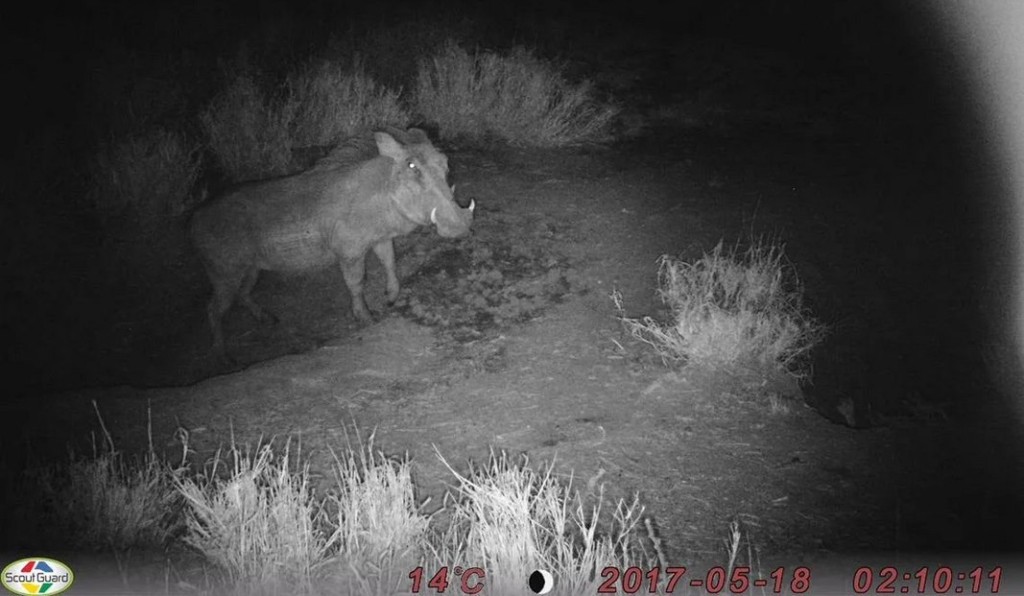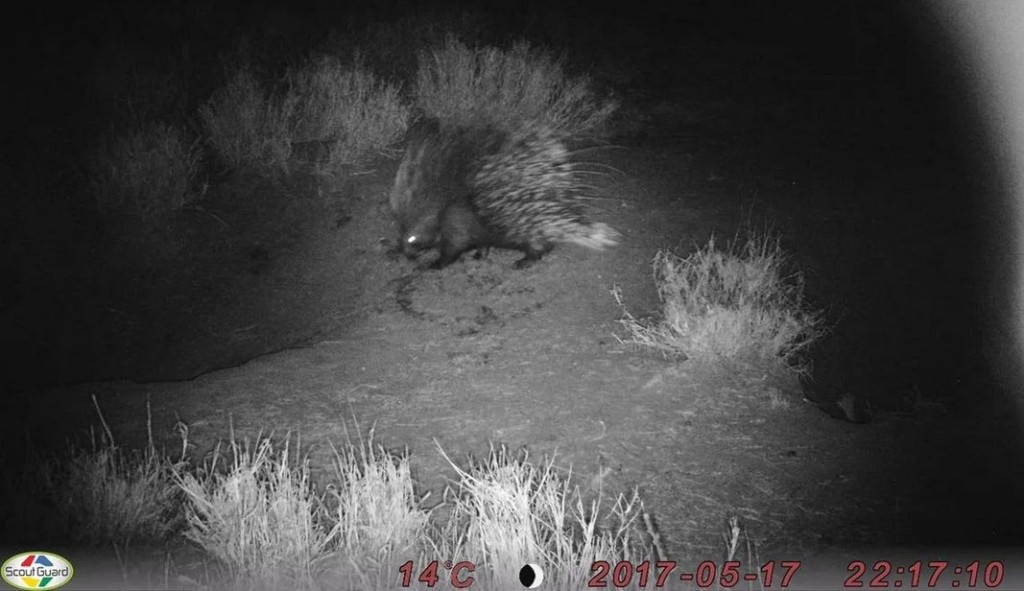
So a porcupine, a hyena, and a warthog walk into a burrow…
No, it’s not the setup to a bad joke, but the abstract in a scientific paper published in the African Journal of Ecology which found they all were able to co-habit the burrow.
Despite the cramped confines of the dug-out den being flush with quills, teeth, and tusks, no blood was spilled on the pages of this rental agreement.
In fact, the scientists, who discovered this novel phenomenon while observing camera traps outside hyena dens in a wildlife preserve in Kenya, suggest that it was, in fact, a “healthy respect for the threats presented by their mutually formidable weaponry.”
Den-sharing isn’t completely novel, it has been observed among porcupines, pine martens, foxes, and badgers in the same hill-burrow complex in Italy in 2019.
However, this is the first time it’s been seen in African animals. In one of the hollows could be found up to, seven hyenas, three warthogs, and two porcupines, and in another, 11 hyenas, six warthogs, and two porcupines.
They shared the space for months, and would sometimes come and go within minutes of each other.
“Hyenas and porcupines are mostly nocturnal, and warthogs are mostly diurnal, so shared dens could be occupied on a ‘time-share’ basis,” researchers said, who stipulated however that there was evidence of all three staying in the burrow at the same time.

Though the scientists didn’t confirm their existence, potentially-separate chambers under the ground likely gave the trio much-needed space, making them more like neighbors than roommates.
The prevailing theory, according to lead author Marc Dupuis-Désormeaux et al, is that during the dry season, the very hard earth made it economical to utilize existing burrows rather than expend energy digging new ones. When the rains returned, the rental agreement seemed to have ended, and the members went their separate ways.

Interestingly, the hyenas burrowing with porcupines and warthogs seemed to entirely refrain from hunting these species, while other hyenas in burrows not occupied by the other animals, continued to do so.

It’s certainly a line of inquiry that deserves more attention.